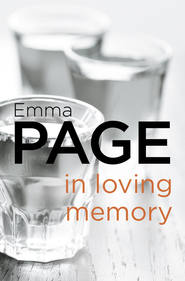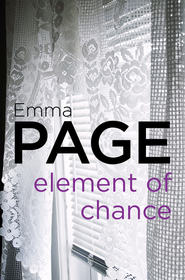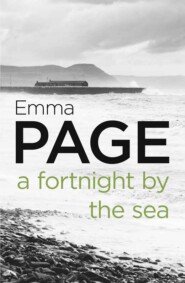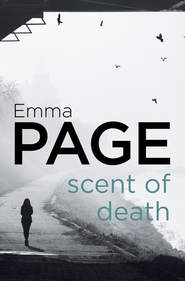По всем вопросам обращайтесь на: info@litportal.ru
(©) 2003-2024.
✖
Final Moments
Автор
Год написания книги
2018
Настройки чтения
Размер шрифта
Высота строк
Поля
‘No, thanks. Just some coffee.’ She tried to persuade him to eat but he shook his head. While he drank his coffee she went along to the front hall to look for the post and came back with a handful of mail, mostly for herself. She always had a good deal of mail; since her marriage she had assiduously followed the example of Lady Wilhelmina and worked tirelessly for a dozen charitable causes. She slit open the envelopes, swiftly sorted out what must be dealt with promptly, what might safely wait a little. She sat down opposite Philip and poured herself some coffee.
Philip glanced through his letters without enthusiasm. He was employed by the bank where the Colborns had always kept their accounts; he had been manager of the Cannonbridge branch for four years now. Ruth had worked for the same bank herself. She wasn’t a native of Cannonbridge; she had been transferred to the Cannonbridge branch a year or so before she and Philip were married–that was how they had met.
She glanced up from her correspondence and saw his dejected air. ‘Cheer up,’ she said in a tone of bracing optimism. ‘It’s a beautiful day.’
He was jerked out of his thoughts. He gave her a long look as if he hadn’t really seen her for some time, then he leaned across the table and laid a hand on hers. ‘I do appreciate all you’ve done for me,’ he said with feeling. ‘I may not say so very often but that doesn’t mean I’m not deeply grateful.’
A flush rose in her cheeks, a tear shone in her eye. She looked at him without speaking, giving him a tremulous smile, surprised and pleased.
He gave her hand a squeeze before releasing it. He made an effort to take an interest in her day. ‘I know you told me what you’re doing,’ he said apologetically, ‘but I’m afraid I’ve forgotten.’ He knew it was some big occasion but he couldn’t for the life of him remember what.
She gave him a quick rundown of the morning ahead: a committee meeting, some essential calls, a look-in at a fundraising coffee morning. ‘But it’s this afternoon I’m really looking forward to,’ she said with a smile of profound pleasure. ‘It’s the presentation of the purses at Polesworth.’ Polesworth was a stately home, the seat of a viscount. It stood in a magnificent park ten miles out of Cannonbridge; the presentation was in aid of the county branch of a national charity for underprivileged children. Two hundred years ago, in the days of Lady Wilhelmina Colborn, there had been occasional trafficking between Springfield House and Polesworth; in the decades after Lady Wilhelmina’s death the trafficking had dwindled and eventually ceased. Now, nine years after Ruth had come to Springfield House as a bride, her feet were about to take her in for the first time though the noble portals of the mansion.
‘I hope it all goes well,’ Philip said warmly. ‘I’ll ring you tomorrow evening.’ He was spending the weekend at Danehill Manor, some sixty miles away. The manor belonged to the bank who used it for conferences, staff courses, seminars. Philip was being picked up at the bank at three o’clock by the manager of a neighbouring branch who was also going to Danehill; they wouldn’t be back till Sunday night.
He frowned anxiously. ‘I’m not at all happy about my paper,’ he said. He had to read a paper on the role of banks in the expansion of small businesses. He had revised the paper yesterday evening, had asked Ruth to glance over it once again before going to bed.
‘It’s fine,’ she assured him now, as she had already assured him half a dozen times. ‘You’ve nothing to worry about. I know it’ll go down well.’
She stood up, leaving the breakfast things to be dealt with shortly by her daily woman, an efficient and competent worker, much superior to the ordinary run of dailies, an invaluable assistant to Ruth in her busy life.
In the hall Philip picked up his briefcase and overnight bag. He rarely came home to lunch, either taking out a client or going to his club. He gave Ruth an affectionate kiss. ‘Look after yourself,’ he told her. ‘Don’t go overdoing things.’
She smiled up at him. ‘Make your mark at Danehill. It’s a good speech. It’ll be a great success.’ She stood watching in the doorway as he got into his car and set off down the drive. As he approached the elegant wrought-iron gates, already standing open, a woman turned in at the entrance. She was pushing a wheelchair that held a vacant-looking, lolling boy; she stood aside to let the car go past.
Philip raised a hand in greeting and she waved back. The boy gave a vague grin and flapped a hand. Dorothy Pickard and her brother Terry, familiar figures about the streets of Cannonbridge and the lanes of the neighbouring countryside, regular callers at Springfield House. Dorothy was forty but looked older. Her naturally pleasant, lively expression was overlaid with an air of chronic anxiety.
Terry was seventeen but appeared much younger. He was small and slightly built; he had been the unexpected child of his mother’s middle age and had suffered from birth from severe multiple handicaps. His mother had done her best to weather the difficult years that followed. Her husband, a building labourer, took himself off when Terry was four, unable or unwilling to share the burden any longer. Mrs Pickard continued stoically to soldier on until herself struck down by ill-health. Dorothy was at that time unmarried, living at home, doing what she could to help her mother in the evenings and at weekends. She worked full-time as an assistant at a garden centre on the outskirts of Cannonbridge; she had always been fond of an outdoor life. When Mrs Pickard’s health failed Dorothy gave up her job to look after her mother and brother, taking any casual work she could find for a few hours here and there: fruit-picking, serving in a local greengrocer’s, putting in half a day at a garden stall in the market.
Mrs Pickard grew steadily worse and Dorothy was forced to give up even these small jobs. Twelve months ago Mrs Pickard died and the entire responsibility for the boy fell on Dorothy. She accepted the duty without resentment or complaint, one of the hazards of existence, to be borne as cheerfully as possible.
Now, as she pushed the wheelchair along the drive of Springfield House, Ruth Colborn came out to meet her, smiling and waving at Terry. The Colborns had no children.
As soon as Terry became aware of Ruth’s approach he gave his vacuous grin and flung his hands about. Ruth crouched down beside the wheelchair and spoke to him, as she always did. He made incoherent, grunting sounds in reply.
‘I’ve put out the leaflets for you,’ Ruth told Dorothy as she straightened up. In the course of her daily perambulations Dorothy delivered notices, brochures, electoral handouts. Ruth’s leaflets were to advertise the annual charity garden day at Springfield House, to be held this year on the first Saturday in June.
To the left of the drive lay a large secluded shrub rose garden. Dorothy halted by the entrance and glanced in. Springfield House had always been noted for its magnificent shrub rose garden, devoted to the old varieties. After her marriage Ruth had resolutely set about rescuing the shrubs from the wilderness of neglect.
‘They’ll be a wonderful sight in another three weeks,’ Dorothy said, eyeing with lively appreciation, and a certain amount of knowledge from her garden-centre days, the graceful forms of Rosa Alba, Rosa Gallica, the Musk, China and Moss Roses, the Noisette and Rugosa. The branching sprays were tightly packed with clusters of buds beginning to show colour, snowy white, delicate cream, pale shell pink, lilac, purple, velvety crimson.
Airy wafts of fragrance floated after them as they moved off again towards the house. ‘I won’t be a moment,’ Ruth said as she went inside for the leaflets. While she was gone Dorothy wheeled Terry along the gravelled walk surrounding the house, pausing to peer in through the windows at the many splendours. When she reached the drawing-room she pressed her face against the glass, gazing up at the full-length portrait of Lady Wilhelmina occupying the place of honour to one side of the fireplace.
The portrait had been painted in London by an artist of note, shortly after Lady Wilhelmina’s marriage. It showed a young woman of erect carriage and slender figure with a handsome, serious face, a wide brow and fine eyes. She had a fresh complexion, thick, shining brown hair arranged in heavy loops and bands. There was some slight natural resemblance between Lady Wilhelmina and Ruth Colborn. It had taken Ruth some years after her marriage to grow her hair to a length where she could arrange it in the same style as Lady Wilhelmina’s gleaming tresses; she had accomplished the feat at about the same time as she had completed the restoration of the house and gardens. Another, later, portrait of Lady Wilhelmina hung in the Mayor’s parlour at the Town Hall and the resemblance between the two women, considerably heightened by Ruth’s new hairstyle, was often remarked on. The similarity in the charitable activities of the two women was mentioned with increasing frequency in the local press. Ruth never failed to note these references with an inward glow of pleasure.
‘Oh–this is where you’ve got to,’ Ruth said as she came hurrying up with the leaflets. Dorothy stepped back from the window and took the bundle from her, stowing it away in a basket fixed to the wheelchair. Her expression now was hesitant and uncertain, she was visibly bracing herself to say something to Mrs Colborn. She plunged in at last before she lost her nerve.
‘I don’t know if you’ve had time to think over what I asked you about the other day,’ she said in a rush. ‘About getting Terry admitted to Lyndale.’ This was a home for the handicapped and disabled, standing in an outlying suburb of Cannonbridge; it was run by a charitable trust and provided for roughly a score of residents. Ruth was a member of the managing committee, a frequent visitor to the home.
‘I wouldn’t dream of asking you,’ Dorothy continued urgently, ‘if there was anything else I could think of. You’re the only person I know that could possibly help me.’ A man Dorothy had known for years, a man who worked the local markets, selling seeds and plants, flowers and shrubs, had recently made her a proposition. He had been a widower for eighteen months; his wife had always worked the markets at his side. He had one daughter who had helped in the business since leaving school but she was shortly getting married and going to London to live.
The man–Ken by name–had recently told Dorothy that if she could make some suitable arrangement for Terry, he would like to marry her. He would expect her to work the markets with him as his wife and daughter had done; he was confident she would pull her weight. It wasn’t that he had anything against Terry but there could be no place in such a life for a severely handicapped lad whose problems must increase as he grew older.
‘Ken isn’t selfish or hard-hearted,’ Dorothy had explained to Ruth. ‘He’s a decent, kind, hard-working man.’ But he was also a practical, realistic man; he had seen more than one marriage broken by the presence of a handicapped youngster. Nor had Dorothy forgotten the example of her own father.
‘Lyndale would be just the place for Terry,’ Dorothy had assured Ruth. On a scale closer to the domestic than the institutional, where he could more easily settle in, and near enough for her to be able to visit him regularly. The place wasn’t strange to him. She often called there with Terry in the course of her errands. Everyone was kind to the boy, he would probably scarcely notice the transition from his own home.
‘I’m very sorry,’ Ruth said gently. ‘I’m afraid I can’t have made myself clear the other day. It wouldn’t be kind to let you entertain false hopes. There really is no possibility, none at all. Lyndale simply will not take anyone of Terry’s age. Twenty-one is the absolute minimum. But there are places that might take him. I could—’
‘Not round here,’ Dorothy broke in, like a terrier pouncing on a bone. ‘Not in Cannonbridge.’
‘There’s a very good place only fifteen miles away,’ Ruth said patiently but Dorothy burst in again. ‘They’d listen to you at Lyndale. If you spoke up for Terry, they’d take him for sure.’
Ruth smiled slightly. ‘I’m afraid I can’t attempt to turn their policies upside down. They don’t make these rules without a lot of thought.’
‘But they did have one or two youngsters there at one time,’ Dorothy persisted. ‘I’m sure I can remember.’
‘Well, yes, that is so,’ Ruth conceded. ‘They did make an occasional exception—’
‘There you are then!’ Dorothy cried in triumph. ‘That’s what I’ve been saying all along. It isn’t a hard and fast rule. If they could make those exceptions then, they can make one for Terry.’
Ruth sighed. ‘It’s a hard and fast rule now, I’m afraid. It’s just because of those earlier exceptions that the committee decided to be very strict in future. The truth is, those particular admissions didn’t work out very well.’ She glanced at her watch. ‘But in any case, quite apart from Terry’s age, there’s a much stronger reason for not admitting him. He really wouldn’t fit in very well at Lyndale.’
Dorothy’s frown returned. ‘He’s not a troublesome boy. You know that.’
‘Yes, I do know that, but the committee have decided that in future they will only admit applicants who are capable of making some kind of personal, social contribution to the life of Lyndale, who are able to help themselves and each other to some extent. It’s far better for the residents, makes them more independent, more sociable, gives them a sense of purpose. It produces a much healthier atmosphere, and of course on a practical level it means the home can be run with fewer staff–and that’s no small consideration these days.’ She paused and then asked gently, ‘Can you honestly see Terry being able to fit into that pattern of life? I’m afraid he’ll never be capable of any more than he is at present.’ She looked down at Terry who grinned amiably up at the pale blue sky.
‘I can’t lose this chance,’ Dorothy said with fierce determination, darting at Ruth from another angle. She knew Ken wouldn’t wait for ever, or even for very long. He needed a wife now; if not her, then he would find someone else. She pressed her hands together. ‘I know we could make a go of it. We’ve always got on well, and I’d love the life. I’ll never get another chance like this.’
Ruth turned towards the house. ‘You mustn’t give up hope,’ she said in a tone of great kindness. ‘I’m sure we can find somewhere suitable for Terry. I’ll make some more inquiries.’
But Dorothy shook her head stubbornly. ‘It’s got to be Lyndale,’ she said, totally unmoved by everything Ruth had said, still confident of the final outcome. ‘Lyndale or nothing.’
Over the weekend the weather continued fair, showing signs of becoming settled again. Along the avenues the laurels raised their creamy candles; on the hills above the town the rowans were in bloom. By two o’clock on Friday afternoon the first fair of the season was in full swing on a stretch of open ground beside the railway station.
Shortly before half past four on Monday afternoon the phone rang in the Franklins’ flat in Northwick Road. Downstairs in the shop Roy heard it ring. He had just finished serving a customer and was busy returning a selection of food processors to their places on the shelves. He paused for a moment and stood listening. Along the counter his assistant explained to a woman the terms on which they offered credit sales.
The phone stopped ringing and Roy resumed his task. A minute or two later there came the sound of someone running down the stairs from the flat. The door at the end of the shop burst open and Jane Franklin darted in. She ran up to Roy.
‘Sunnycroft School’s just rung,’ she said breathlessly. ‘Venetia hasn’t turned up to collect the children. They rang the cottage twice but there’s no answer. They wanted to know if you’d pick the children up. I said we’d be over right away.’
‘There’s no need for you to come,’ Roy said brusquely. ‘You can give a hand in here while I’m gone.’
She shook her head with determination. ‘I’m coming with you.’
He looked as if he might argue but then thought better of it; he gave a little jerk of his shoulders. He spoke to the assistant and then went rapidly out with Jane behind him.
Sunnycroft School, a small private establishment, was situated in a residential suburb at the other side of town. The traffic was building up towards the rush hour and it was a good fifteen minutes before Roy drove up to the front entrance. He jumped out and pressed the bell.











